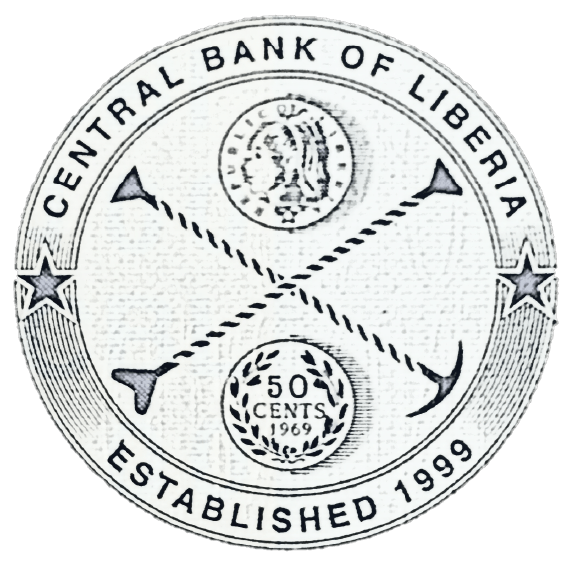
The Board of Governors, Central Bank of Liberia
The Deputy Minister of Finance for Economic Management Policy and Debt
Ministry of Finance and Development Planning
The World Representative to Liberia and Team,
IMF Resident Representative to Liberia
Distinguished ladies and gentlemen,
The economy is challenged by macroeconomic uncertainty. Inflationary pressure continues, emanating from low output and exchange rate volatility. The real sector, including manufacturing, service and agriculture, is underperforming, constrained by low investment and diverse structural bottlenecks. These impediments have transmitted into monetary policy difficulty for the Central Bank of Liberia to effectively actualize its core mandate of price stability, and by extension financial sector stability.
It is therefore imperative for the Bank’s monetary policy to be forward-looking with a strategy that is more engaging, consultative and collaborative aimed at identifying and strengthening policy to effectively address the current macroeconomic challenges. That is why financial inclusion has been considered not only at this forum, but as an important national strategy that would complement other monetary policy actions to mitigate liquidity pressure in the economy.
Financial inclusion has, in recent years, not only claimed the attention of policymakers, but also the private sector and development institutions because of its potential of unleashing opportunities for inclusive economic growth. Policymakers across the world have considered financial inclusion, an integral component of their policy goal and broader objective of alleviating poverty.
At the domestic front, Liberia has not leveraged significantly on the benefits of financial technology. At the moment, it is estimated that 79 out of 100 persons in Liberia use mobile phones, but the use of financial services through technology is still low, reflecting about 36 percent. The question is how can we deepen the use of financial technology to enhance a more inclusive financial environment?
From the perspective of central banks globally, evidence shows that financial inclusion is crucial for promoting not only financial stability, in terms of stable funding sources, but also supporting private sector development and monetary stability.
In Liberia, the Central Bank of Liberia (CBL) has been endeavoring to deepen financial inclusion over the past 10 years. Several initiatives have been pursued and employed, including promoting and creating the enabling environment for the wider use of mobile money across the country; the national payments system; agent banking; establishment of collateral registry to foster access to credit using movable assets as collateral; and other efforts targeted at deepening access to credit by micro, small and medium enterprises. As a further demonstration of CBL’s commitment to modernizing the financial sector, financial inclusion has been articulated as one of the key pillars of the Strategic Plan of the Bank. Today, we will be launching the National Financial Inclusion Strategy (NFIS), which has been endorsed by the Cabinet led by His Excellency Dr. George Manneh Weah, President of the Republic of Liberia. The launch of this NFIS, which will be implemented over the period (2019-2023) will offer Liberia another milestone for our disadvantaged and underprivileged population, mainly in rural areas, who are often excluded from the mainstream of formal financial services.
Distinguished guests, I take this opportunity to also inform you that the CBL has initiated a massive sensitization campaign across the country to accelerate public sensitization for people to be receptive to our financial innovation and monetary policy instruments. The World is rapidly progressing in financial digitization, and there is no auspicious time rather than now for Liberia to overwhelmingly embrace and accept electronic payments for financial transactions. Liberia can reap enormous benefits from financial inclusion such as financial efficiency, low-cost access to finance and inclusive growth. With the existing technological infrastructure, Liberia can make significant progress in financial digitization.
We want to appreciably acknowledge the continued support from our development partners, especially the World Bank, International Finance Corporation (IFC), International Monetary Fund (IMF), and Alliance for Financial Inclusion (AFI). We admonish our partners to stand with us in this process in terms of additional support such as technical assistance and investment for the development of vibrant ecosystem as well as linking our rural communities with electronic instruments for an increased access to digital financial services.
Before I close, let me extend this passionate appeal to the conscience of our public that monetary policy discussion should be done with caution, prudence and fact to reflect confidence in the financial sector. CBL is guided by conventional and statutory policies in respect to critical aspects of its core operations, including currency and liquidity management in the economy. Contravention of any of these policies have serious consequence for the financial sector and the country at large, and the CBL cannot afford to expose the country to any unavoidable risk, especially at this critical time that the IMF has approved Liberia’s new four-year ECF-supported program. Accept our special thanks for acceding to our invitation. We hope today’s forum will provide a more informative policy interaction and elicit the necessary recommendations for actualizing our financial inclusion aspirations.
